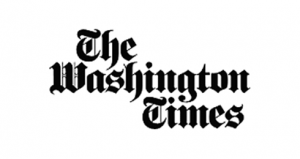
(This post originally appeared on The Washington Times)
If you run a small business, then you don’t need anyone explaining how the coronavirus is affecting you. You’re well aware that the closures, quarantines and restrictions in your community and worldwide are either severely impacting your operations (or will be). You know that this will cause a significant decrease in economic activity which will more than likely bring the economy into recession-territory very soon.
You know this. But take heart. There’s good news. The financial problems we’re all experiencing now are nowhere near as severe as the problems we had back during the last Great Recession of 2008-09 and there are least three fundamental reasons why.
For starters, the country’s financial systems are very sound.
Ten years ago, that was not the case. Major banks were failing. Wall Street giants like Lehman Brothers and Bear Stearns were going bankrupt. The machinery of our financing system froze. Existing credit facilities were taken away. New loans dried up. Capital was scarce. As a result, businesses both big and small found their lines of credit unavailable and the requirements for new financing onerous. This lack of capital put many out of business and impacted investments and growth for years after the economy recovered.
But that’s not the case today. As always, there were some areas of economic concerns leading up to the coronavirus pandemic. But as recently as February small business confidence, jobless claims, unemployment, services, industrial production and the housing markets were all strong. Credit availability, even for small businesses (many of which experienced strong revenue growth in 2019), also remains high.
Inflation is around 2 percent and interest rates — particularly after the Fed’s latest moves — are now close to zero. The number of “problem banks” are at a historical low. Energy prices haven’t been this cheap in years. Credit options — from community banks, credit unions, online lenders and the Small Business Administration — are more accessible than ever. Sure, the stock market has been exceptionally volatile but really, wasn’t a correction expected anyway?
The fact is that most companies are valued well above where they were even just a few years ago. Corporate America’s balance sheets are still strong. Businesses — especially small businesses — needing credit can still get it and they can get it pretty cheap.
Second, this is a short-term event.
During the Great Recession, no one in the business community was sure when the damage to our economy would be repaired or even if it could be. Stocks remained depressed for years. Prices fell. Confidence plummeted. Airlines, insurance companies and other large organizations were pleading for bailouts.
The Fed was forced to inject billions into our banking system just to keep it running. The resulting uncertainty forced companies to eliminate workers for the long term and make dramatic changes to their spending. We, as business owners, hunkered down and hoarded our cash … for years.
But that’s not happening now. My clients see this problem as a short-term one. No one is playing down the significant impact on demand caused by this pandemic (and yes, the airline industry will probably be asking for handouts). But ask any business owner and they’ll tell you that this thing will “soon” run its course and that things will eventually get back to “normal.” When? We’re not sure, but … soon.Luckily, the brunt of the problem hit the United States in the spring, which means that as the weather warms up, most scientists agree that the effects of the virus will be muted. Short-term quarantines and other restrictions in countries already affected by the virus are proving effective. Clinical trials of a vaccine are already underway, with the expectation that sometime in the next year or so there should be a medical fix to this problem.
Events, conferences and trade shows aren’t being cancelled. They’re being rescheduled. There is a light at the end of the tunnel. We can see it. But in 2009, there was just darkness.
Finally, consumers are being forced not to spend, instead of the other way around.
For all the right reasons, consumers are being made to stay at home. Governments are shutting down the places where they spend their money — the restaurants, shops, fitness centers, sporting events and salons. Big companies like Starbucks and Disney are temporarily closing their doors or restricting sales. These businesses are literally turning down money for the greater good of society.
Consumers want to spend. They have the money. They have jobs. But they’re being forced not to spend. During the Great Recession, the opposite was happening. Those same companies were begging for customers. But it was the customers who chose not to buy.
Before the pandemic hit, most businesses were scrambling just to keep up with demand. Their biggest problem was finding qualified labor. For many, that demand is still there and now these same businesses have a different problem: How do we get all this work done when no one is allowed to come to work?
Different than 2009, restaurateurs and shopkeepers don’t want to lay people off. They need their employees. They know that demand has been artificially pre-empted and as soon as the sun shines and the threat of infection dwindles — whenever that is — they will be inundated with hungry, eager customers wanting to celebrate life. So their biggest problem is how to keep their employees now so that they can get this inevitable work done in the future.
Different times. Different problems. But no, this upcoming recession isn’t going to be like the last one. Nothing close in fact.

